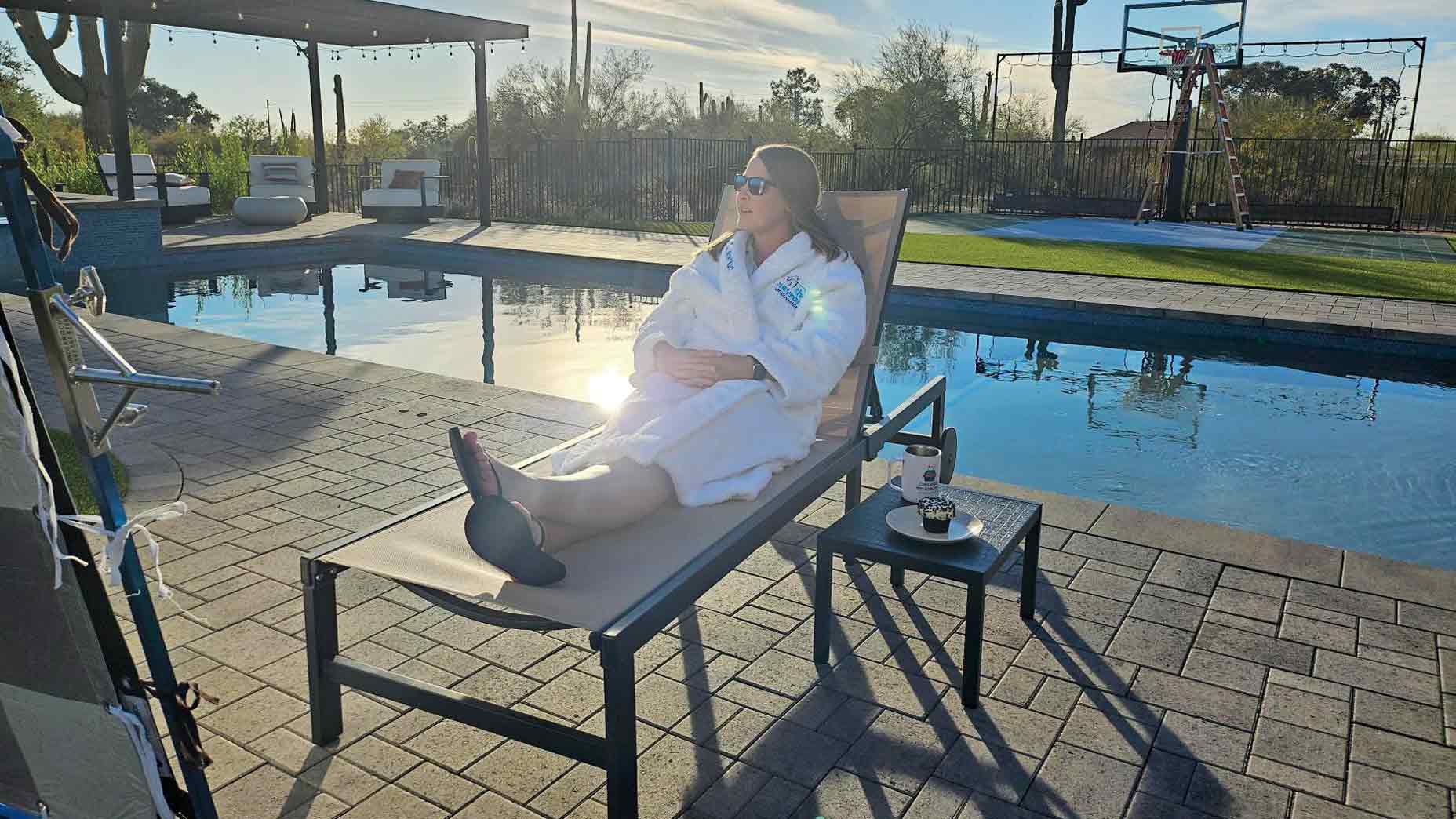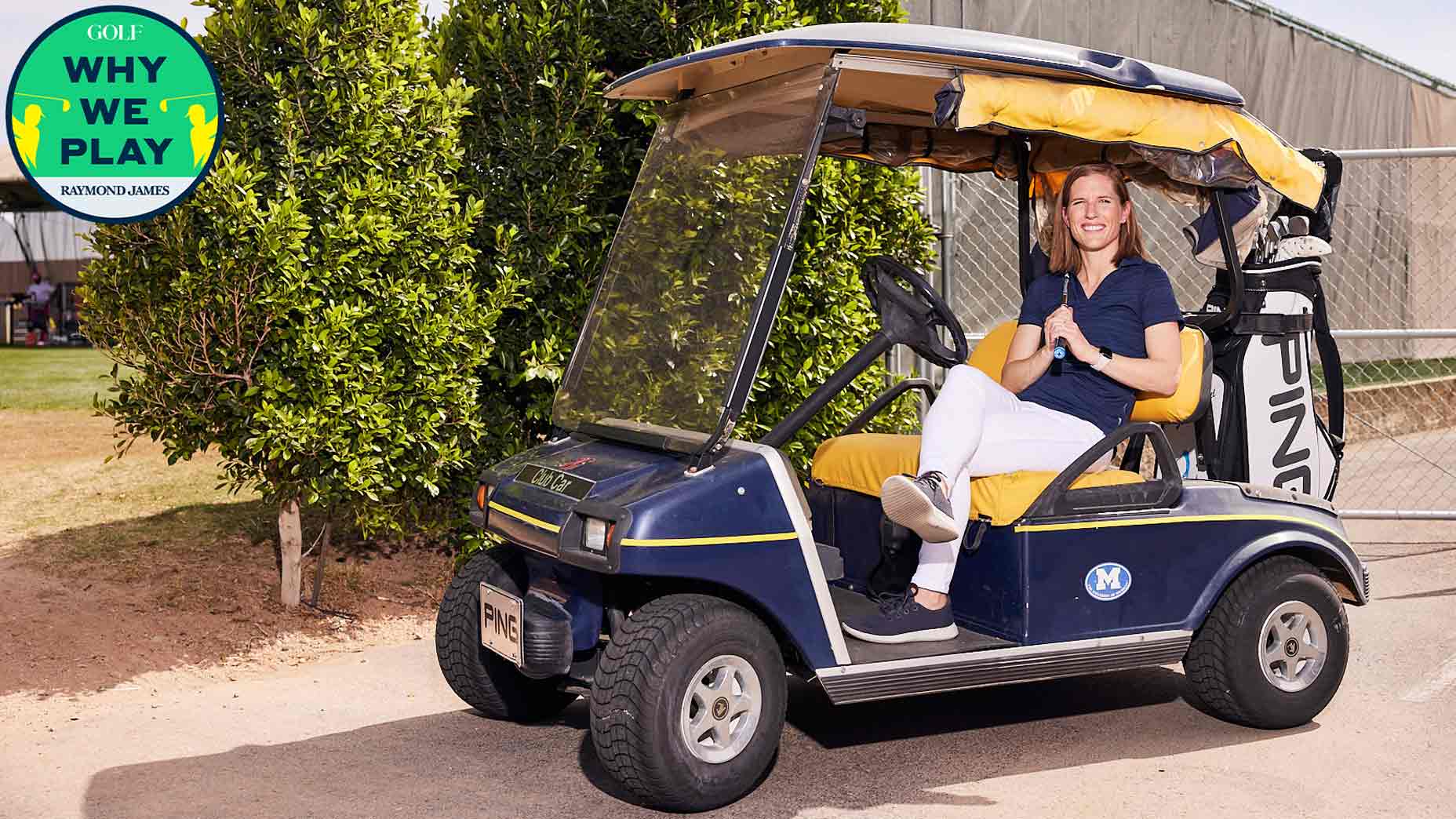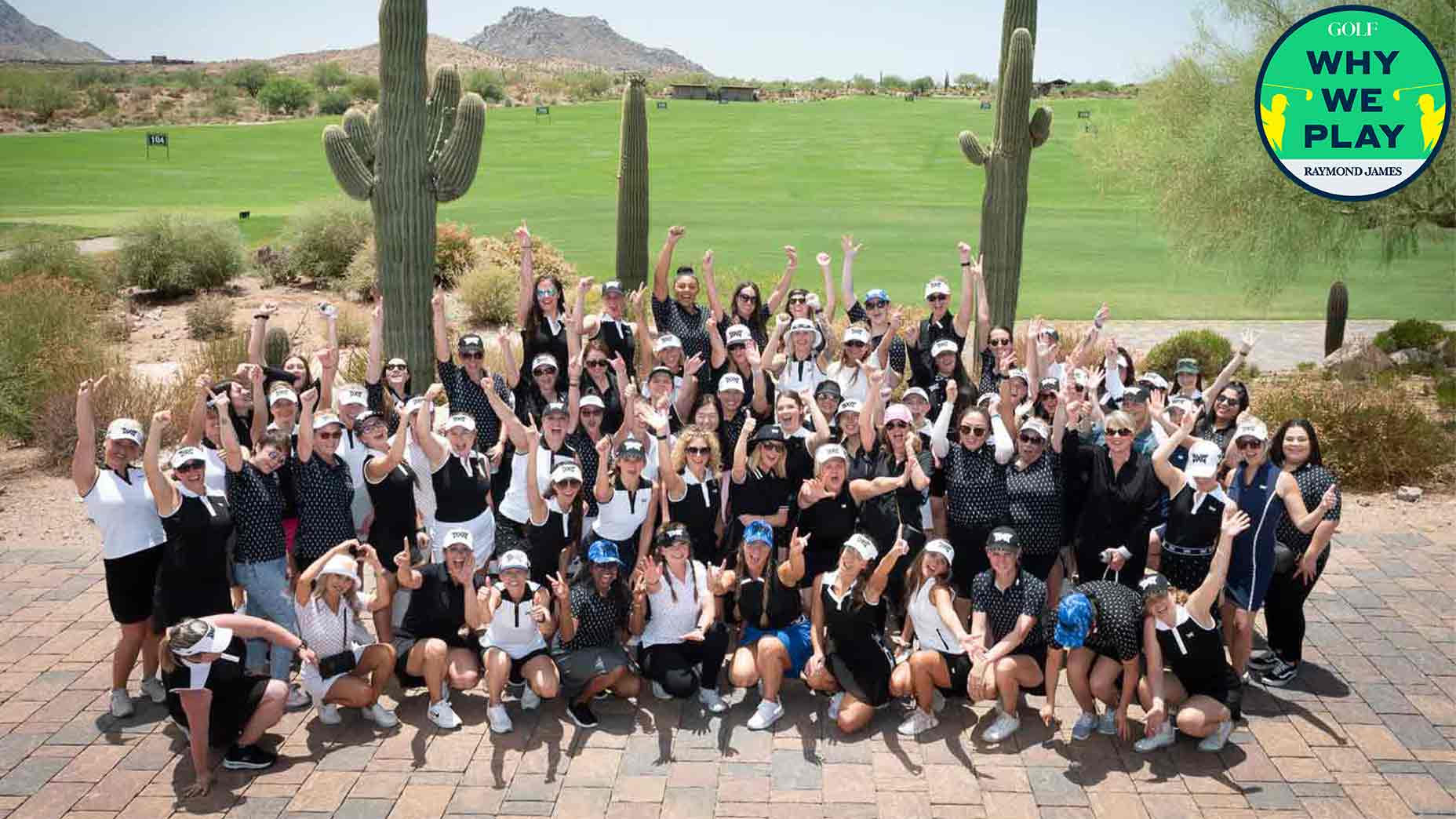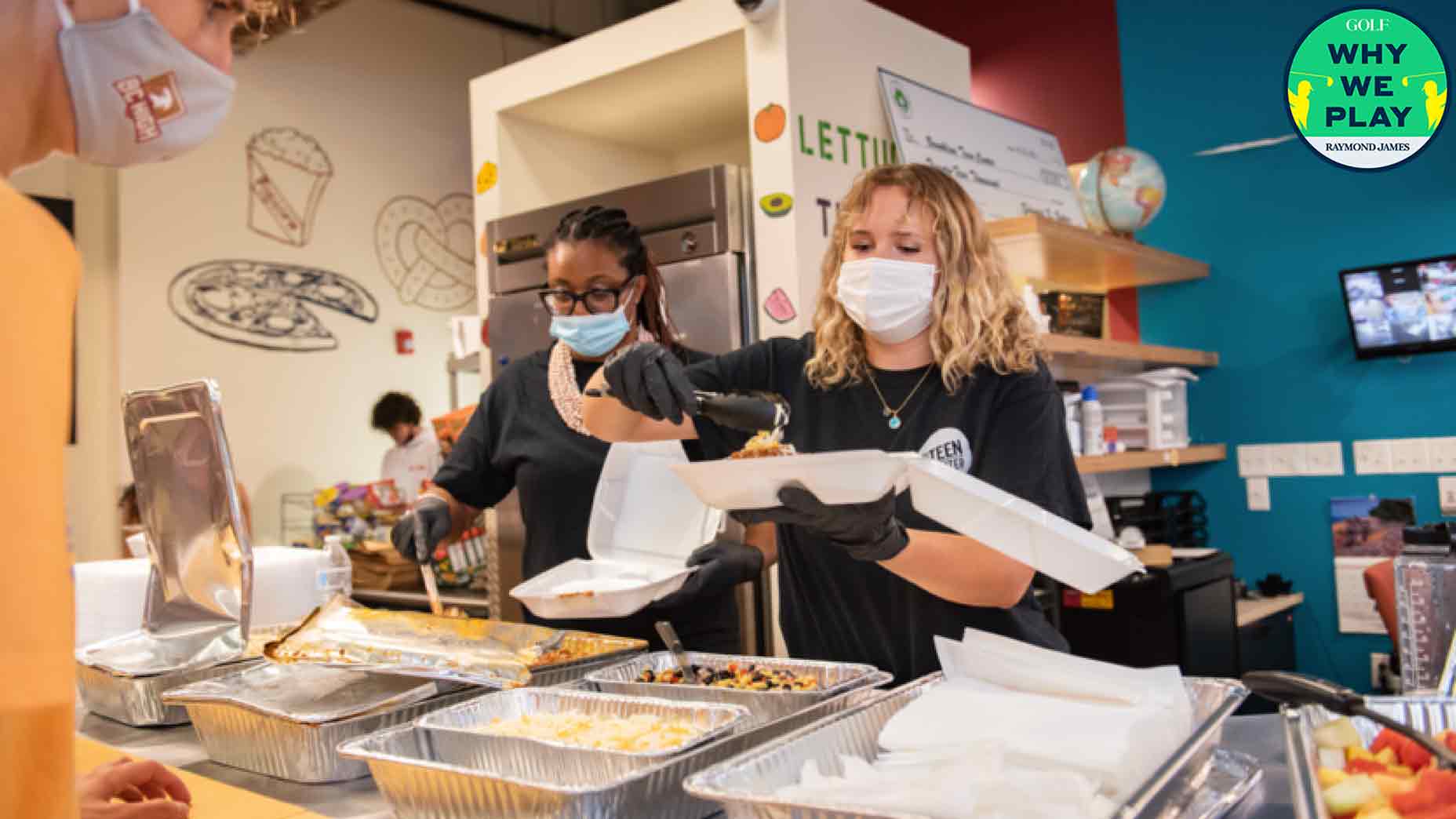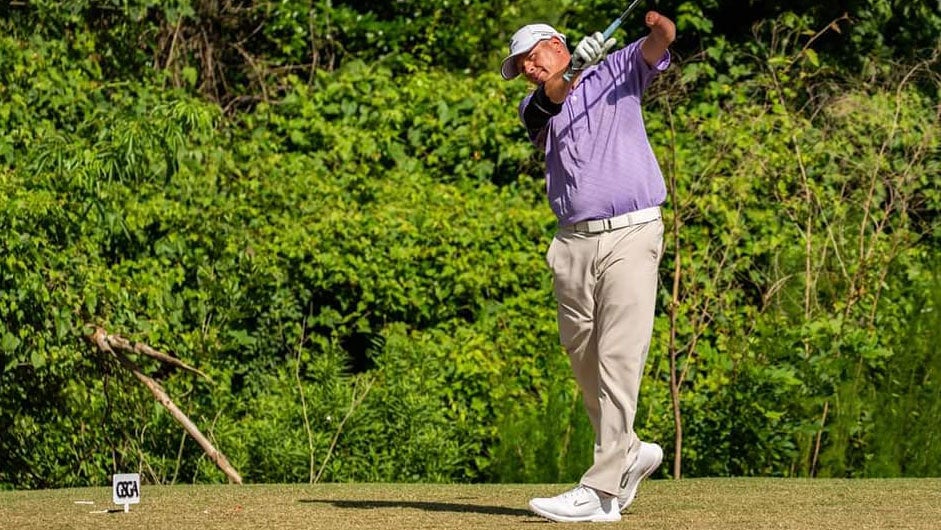Jake Hutt has a Trackman and he will travel.
Name the destination. He’s good to go.
A PGA-certified instructor with a playoff beard and mullet of the semi-pro hockey player that he once was, Hutt, 33, has a roll-with-it demeanor suited to the road. From his home in the South Bay, a quick trip from San Francisco, he motors around the region in his tricked-out rig to an eclectic range of places and events: bachelor parties, birthday bashes, restaurant pop-ups, corporate outings. Dryvebox can be booked for private lessons or rented out to groups by the hour.
His mode of transport is a pickup truck with a simulator built into a trailer hitched behind it.
It’s called Dryvebox, an apt name for what Hutt bills as “a driving range on wheels.”
“The beauty of this thing is that we can take it to anyone, anywhere, anytime,” he says.
That’s the business model.
But the mandate isn’t just about the bottom line.
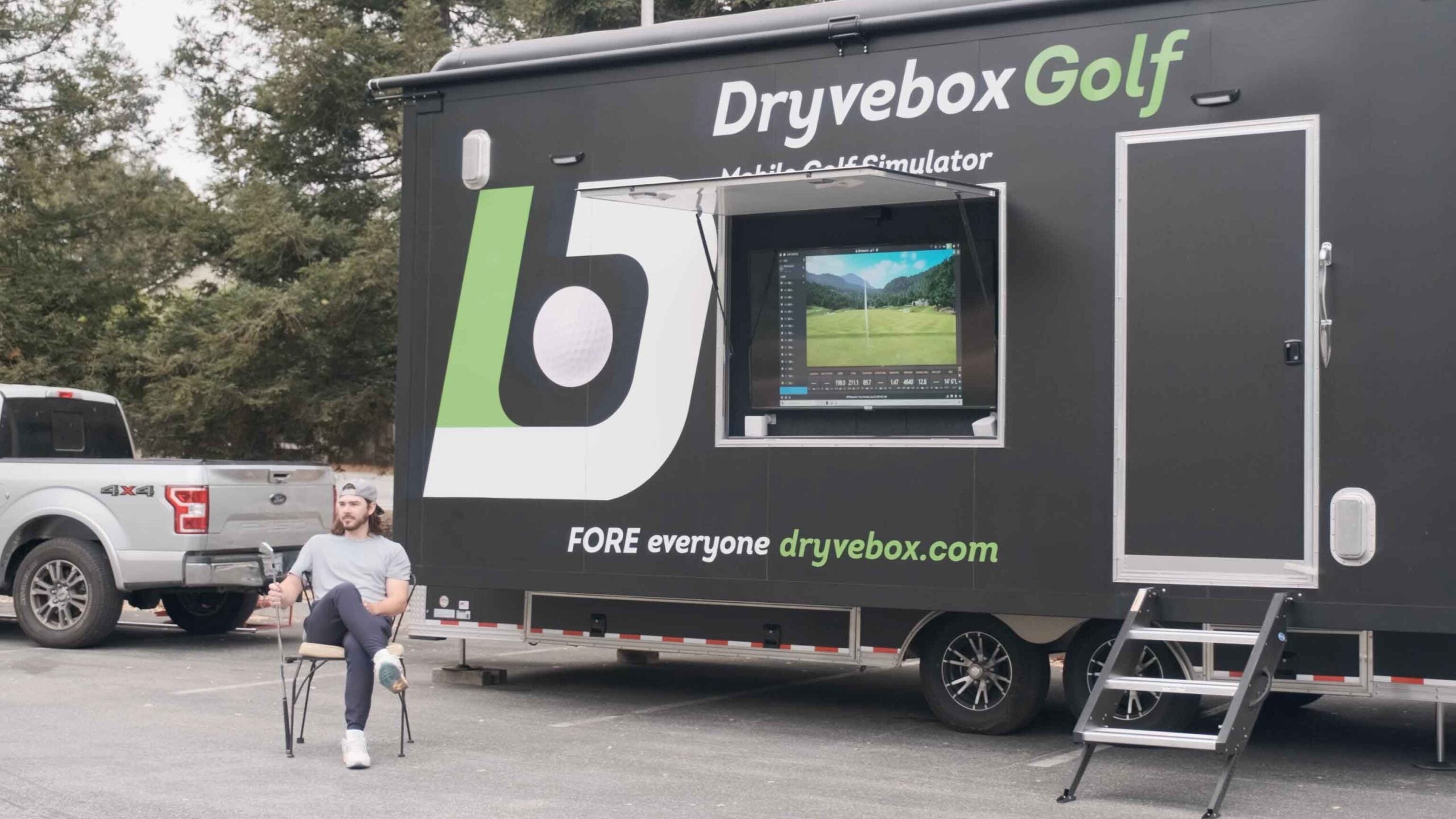
At least once a month, Hutt stations Dryvebox at parks and curbsides in golf-starved neighborhoods, offering free swings (and free swing tips) to anyone who wants them, including those who have never gripped a club. On other occasions, he takes the getup to low-key public courses with junior programs whose kids enjoy scarce access to high-tech golf instruction.
“We want to introduce the game to as many people as possible,” Hutt says. “But I can guarantee you, even if they have played golf, they’ve never played it like this.”
While Hutt is the affable face of Dryvebox, the brains behind it is Adeel Yang, 35, a San Francisco-based entrepreneur who got hooked on golf nearly three years ago. When lockdowns hit, and his usual outlets shuttered, Yang pitched his wife on installing a simulator in their home. Request denied. So, Yang pivoted to a mobile concept: a simulator in a trailer he could park outside his front door, or take around to share with friends.
I can guarantee you, even if they have played golf, they’ve never played it like this. Jake Hutt
Startups are what happen when you’re planning something else. What began as a personal diversion soon drew enough interest from enough people that Yang concluded he could make more of it.
“I realized it could be a side hustle,” he says.
It took time to nail down the details. The trailer went through several iterations as Yang worked out dimensions (8-feet wide, 22-feet long and 13-feet-4-inches high in transit; and a few feet longer when parked and extended) that maximized space while remaining within street-legal limits. Late last fall, Dryvebox was ready for the road.
The vehicle was one thing. Yang needed someone to ride along with it, a personable someone who was good at golf.
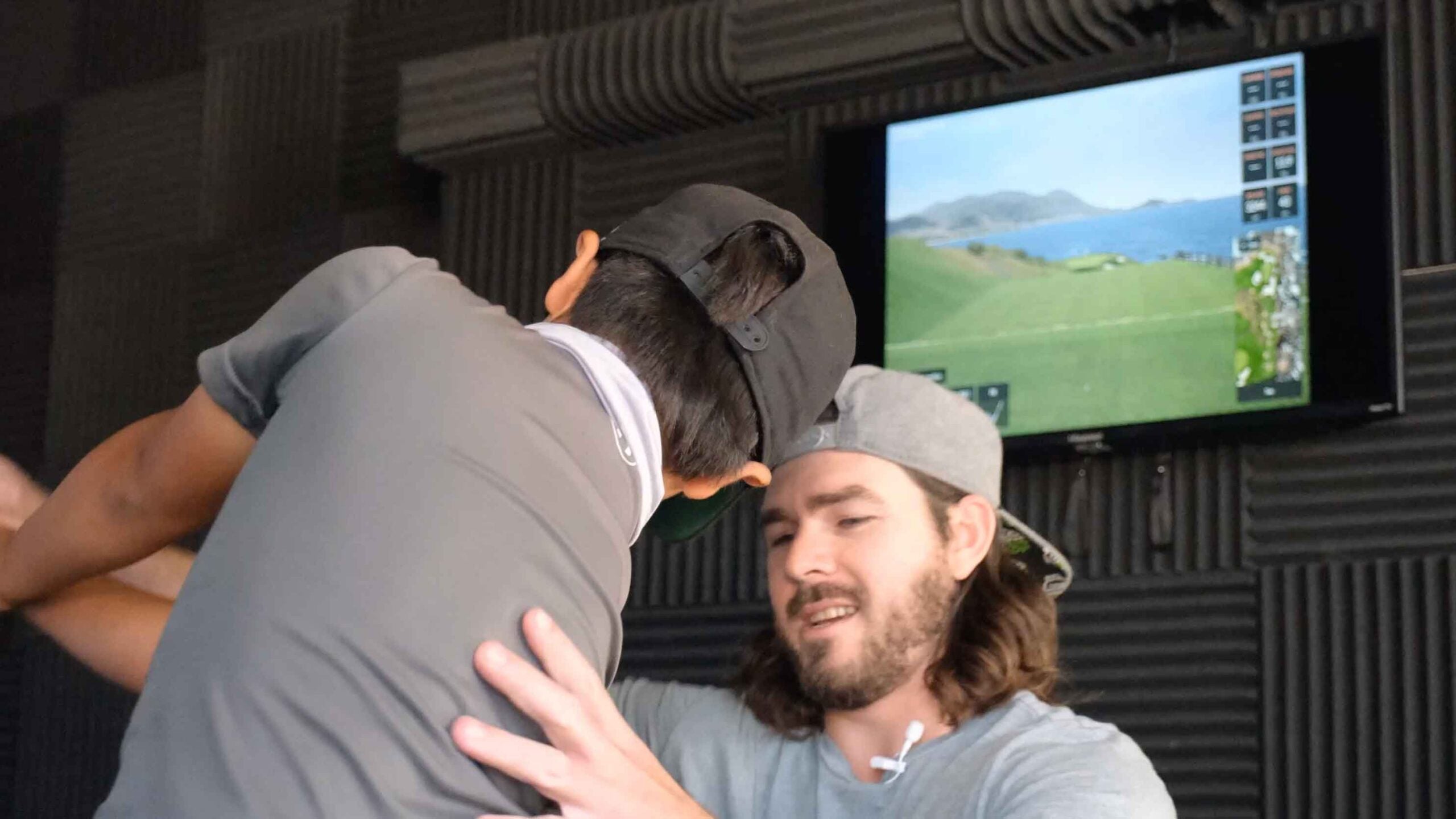
As lockdowns lifted, Yang sussed out candidates discretely by booking sessions with various instructors. The moment he met Hutt, he knew he had his man.
“I thought he’d come to see me for a lesson,” Hutt says. “Turned out it was a really job interview.”
Hutt already had a robust Instagram presence, and a reputation around the Silicon Valley as a guy who knew his stuff and made golf fun. The tech entrepreneur Randi Zuckerberg (Mark’s sister) was among the powerbrokers in his stable of students. Shortly after Dryvebox launched, Hutt was giving lessons in the rig at a South Bay park when Zuckerberg dropped by with her 10-year-old son to see what the trailer was all about.
“We had so much fun hitting into the simulator, my son didn’t want to leave,” Zuckerberg says. “I finally said to Jake, ‘I guess you’re going to have to let me invest in this.’”
She did.
Another Dryvebox convert is the former San Francisco 49er and NFL Hall-of-Famer Ronnie Lott. An avid golfer, Lott is also the co-founder of All Stars Helping Kids, an organization aimed at helping break the cycle of poverty in underserved communities by seed-funding nonprofits devoted to that goal. In Dryvebox, Lott saw a (literal) vehicle for growing the game, which in turn could open broader avenues in life, especially for underprivileged youngsters.
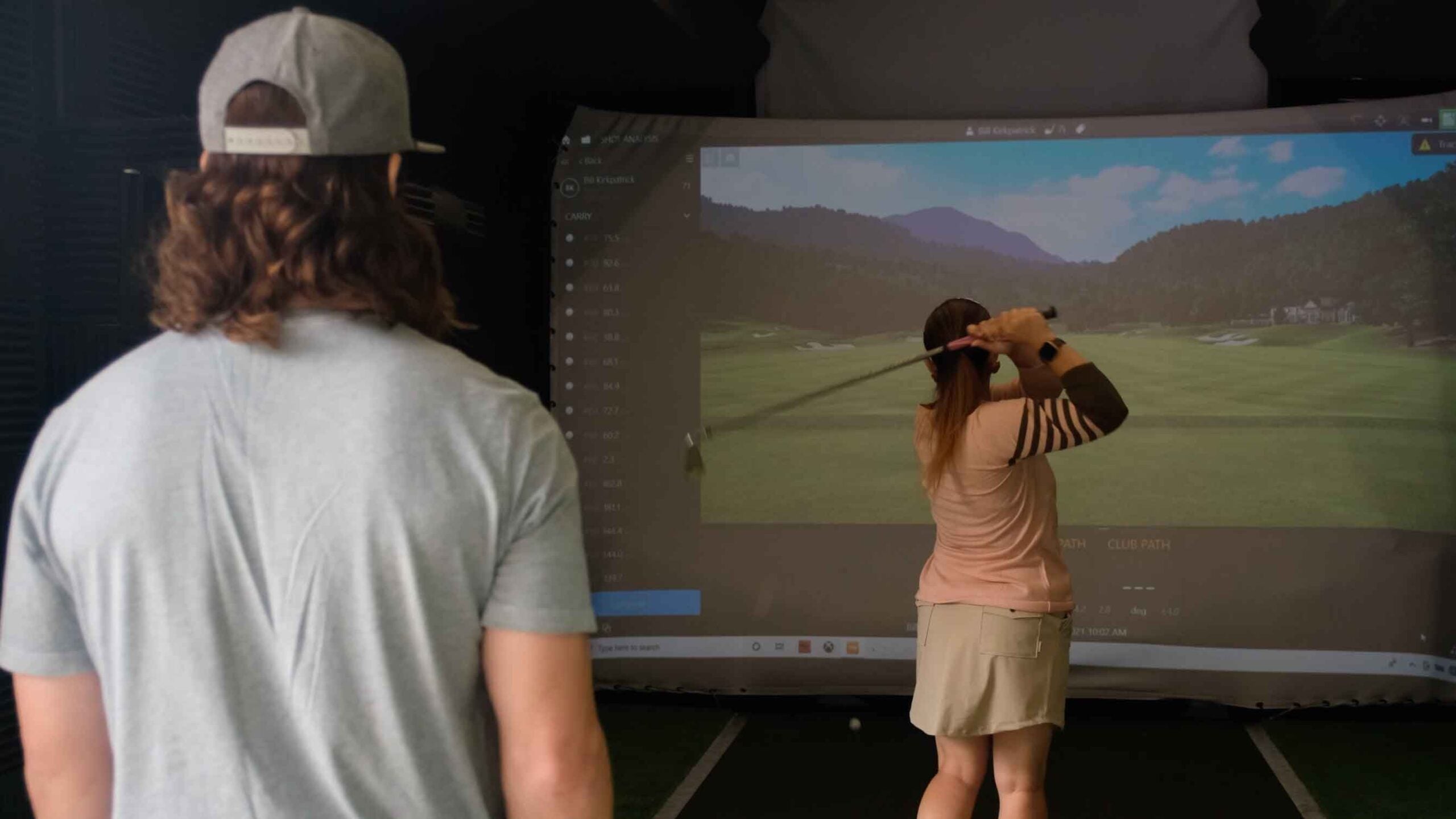
He became an investor, too.
“When you think about golf and the relationships it builds and the skills you learn beyond the swing itself, those are powerful tools you can give to a kid,” Lott says. “I think (Dryvebox) should be at every Wal-Mart. I think it should be at every Costco.”
There aren’t enough Dryveboxes to make that happen, but Yang, Hutt and their third business partner, Mike Leong, are busy building out a fleet. To date, they have four mobile simulators roaming the country. Six more are soon to be set loose. Yang envisions blanketing the domestic market, then launching the concept overseas.
There is money to be made, no doubt about it.
But, Yang says, he has also come to see Dryvebox as a “movement.”
“When you think about golf, it’s a real estate business. You not only need land, you also need to maintain that land, and that makes the game expensive,” he says. “Once you take real estate out the equation, as we have, you eliminate a barrier, and there are so many more people you can reach.”
Once you take real estate out the equation, as we have, you eliminate a barrier, and there are so many more people you can reach. Adeel Yang
On a recent afternoon, Yang joined Hutt on a Dryvebox outing across the San Francisco Bay toward Lake Chabot Golf Course, an assuming muni in east Oakland. Lake Chabot is home to Ace Kids Golf and Academy, which offers clinics to hundreds of participants, ranging in age from 5 to 18. Dozens of those juniors were milling around a modest practice range when Dryvebox pulled up.
Out popped Hutt.
“Hey,” he called out, “anybody want to play some simulator golf?”
He flung open the back door, and a few lever-clicks and button-pushes later, the trailer was transformed into a hitting station, with a stairwell leading up to its rear entrance.
“Whoa,” said nine-year-old Julian Lopez, peering inside at the simulator screen, which displayed an image of the par-3 7th hole at Pebble Beach. “That’s so cool.”
A group of kids rushed forward, and Julian joined them, chatting excitedly in line while waiting for his turn to take some swings.
On it went like this for hours, with one kid taking whacks after another, with Hutt providing counseling and encouragement.
“This is the whole idea, the dream, really,” Hutt said. “We’re just going to bring this around, hand someone a club and say, ‘Hey, you want to come in and play.’”
It was late afternoon when Hutt finally called it quits, shutting down the Trackman and closing the trailer. The kids were still buzzing as he wheeled away.


